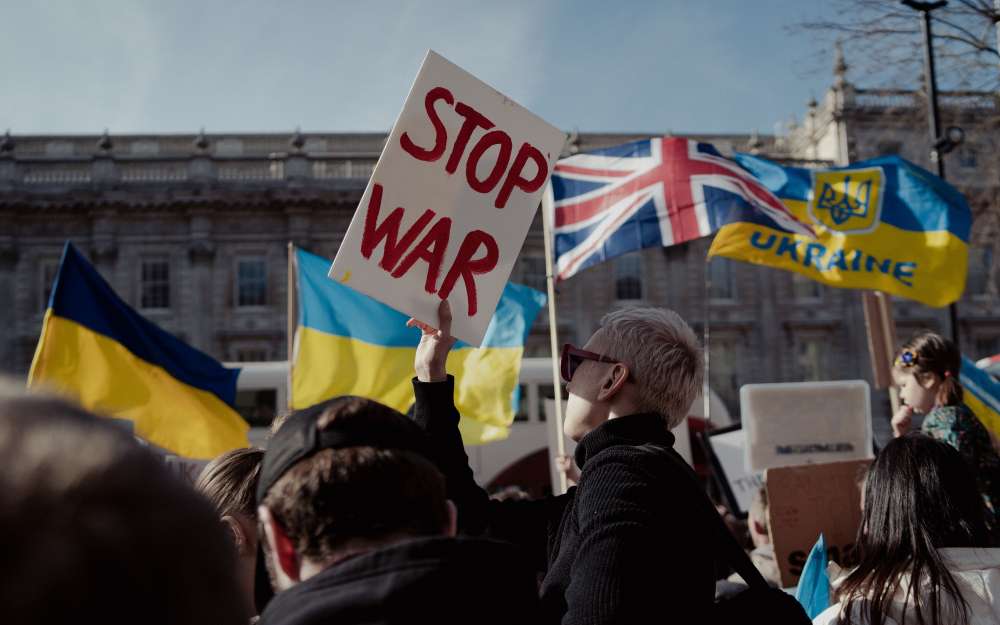Putin’s War: How Long Until the Next Off-Ramp?

War is madness, and so it is understandable that the question of how to end it remains at the front of our minds. We as Germans and Europeans should ask ourselves what we can do to help. But when the follow-up question is how we can “push” Ukraine toward a deal with Putin, this is not just a symptom of our helplessness: we become a part of the problem, regardless how well intentioned the question.
For now, when it comes to an exit strategy, the ball is in Putin’s court, and he is betting on a victory. The Russian delegation’s posturing during the negotiations with Ukraine on Monday proves as much. For everyone else, this is mostly bad news – but it also means that, should Putin decide that the war is no longer in Moscow’s interest, he could always signal that he is looking for a way out and negotiate toward it. Russia is not conducting negotiations as a pretense but rather as part of its larger information war. Indeed, Putin would accept Ukraine’s surrender at any time, even at the negotiating table. But whether and at what moment Ukraine should capitulate will be for Ukraine alone to decide. And Putin alone will make the call on if and when to seek an end to the hostilities.
Despite the courage of those protesting the war in Russia, there is no sign that Putin’s grip on power is anything less than absolute. And as long as he is in complete control, he can also spin a web of pretty lies to sell his relative failure as a partial success. And should Putin chose to take this route, hardly anyone would stand in his path.
Germany is in no position to give strategic advice to Ukraine in this situation. After at least eight years of deluding ourselves about our relevant influence over the Kremlin, we would be well advised to practice rhetorical and political restraint for a good, long while.
Wars rarely end in unambiguous solutions. If Putin wins his war with brute force, by killing many thousands of people, displacing millions more and overthrowing Kyiv’s democratic government, then he will have created a new reality in Ukraine.
But as of now, there are still many options for how the war could play out: perhaps there will soon be a new Ukrainian government that listens to Moscow, and perhaps the armed resistance will fight on. Whether and how we should then support the Ukrainian government and/or the resistance is not something that we can decide today in the abstract.
In the current situation, there is no “middle ground” or “balanced proposal” to put on the table. The two sides each have their own demands: Putin – the aggressor – requires Ukraine’s total capitulation, while the Ukrainian government calls for Russia’s complete withdrawal based on international law as well as political and moral considerations, which NATO and the EU support. Any possibilities for negotiated ways forward must be measured against whether they are acceptable to both sides and can at least serve as an entry point to a more permanent solution.
None of the current ideas for achieving neutrality for Ukraine meet these requirements, mainly because Kyiv can hardly trust the Kremlin to respect such neutrality. And in the absence of a Ukrainian choice, it is not Germany’s place to decide how to best save Ukrainian lives or freedom.
An abridged version was originally published in German in Tagesspiegel on March 02, 2022.







